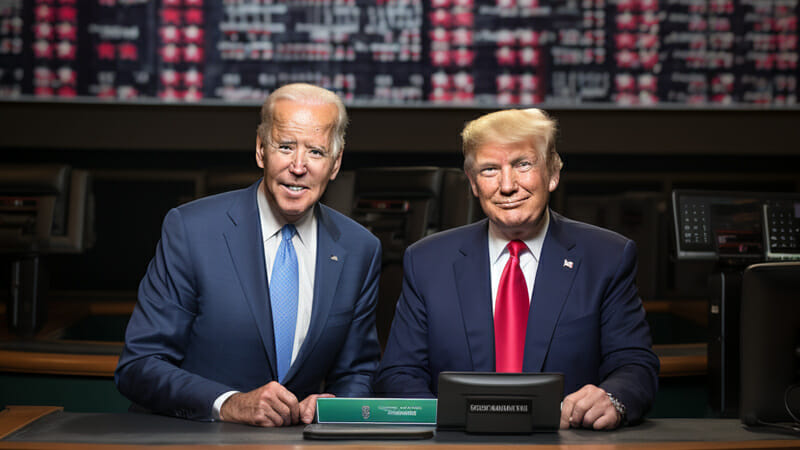Senators Rally Against Election Betting Over Integrity Concerns

A group of Democratic U.S. Senators has recently expressed their opposition to the idea of expanding the very limited legal U.S political betting market.
They have called on the Commodity Futures Trading Commission (CFTC), an independent agency of the U.S. government, to block new online exchanges that facilitate wagering or “buying shares in” political outcomes.
The move comes after a high-profile court case involving nonprofit political betting site PredictIt, which has an operational exemption letter from the CFTC.
Shortly after that entertainment and news betting site won its court case, a similar betting site, Kalshi, announced that it will be asking the CFTC for an exemption akin to PredictIt.
The senators include Jeff Merkley (D-Oregon), Sheldon Whitehouse (D-Rhode Island), Ed Markey (D-Massachusetts), Elizabeth Warren (D-Massachusetts), Chris Van Hollen (D-Maryland), and Dianne Feinstein (D-California).
They signed an open letter last week in which they voiced their concerns over the potential threats to the integrity of elections that betting could pose.
“Establishing a large scale, for-profit political event betting market in the United States by approving Kalshi’ s requested contracts would profoundly undermine the sanctity and democratic value of elections,” the letter said.
Contrary to Public Interest
The controversy around U.S political betting has been brewing for some time.
PredictIt has been facilitating the buying and selling of shares of potential political outcomes since 2014.
It had received a letter of no-action from CFTC before opening. That’s after successfully arguing its case. PredictIt says that its political betting operation is small scale, not for profit, and provides invaluable data to political research in a way similar to polls.
However, the CFTC rescinded its no-action relief letter from PredictIt a year ago, leading to the suspension of new betting markets. It then tried to shut the operation down – but PredictIt filed a countersuit.
In the end, the U.S. Fifth Circuit Court of Appeals sided with PredictIt last month, ordering a lower court to prevent the CFTC from taking further action against the online political betting website.
Another online betting exchange, Kalshi, then entered the picture. Bloomberg reported that the New York-based firm was courting hedge funds and other multimillion investors with potential election betting. It planned on getting the same “no action” exemption as PredictIt for its activities, believing that the previous case had set a precedent.
Currently, Kalshi offers betting or “trading” on such serious markets as when the Hollywood writer’s strike will end, how many measles cases are in the U.S., and whether or not the country will default on its national debt.
The prospect of adding political markets to that list did not go down well with the group of Democratic Senators. They have now urged the CFTC to block Kalshi from opening political markets, citing the potential threats to the sanctity and democratic value of elections.
“Kalshi’s proposal closely resembles gaming. Placing a bet or wager on the outcome of an election is civilly or criminally unlawful in well over a dozen states nationwide, and establishing a large for-profit market on election outcomes is decidedly contrary to the public interest,” the letter said.
The Billionaire Factor
The senators aren’t exactly talking about Las Vegas style hundred or thousand dollar bets in their letter, and, looking at Kalshi’s declared target market, neither are potential operators.
The senators have instead mostly raised concerns about the potential influence of billionaires on politics if election betting was to spread across the U.S.
They argue that billionaires could expand their already outsized influence on politics by wagering extraordinary bets while simultaneously contributing to a specific candidate or party. The letter also pointed out that such a market could lead to political insiders, privy to non-public information, wielding their inside knowledge to profit at voters’ expense.
“If citizens believe that the democratic process is being influenced by those with financial stakes, it may further exacerbate the disenfranchisement and distrust of voters already facing our nation,” the letter finished.











